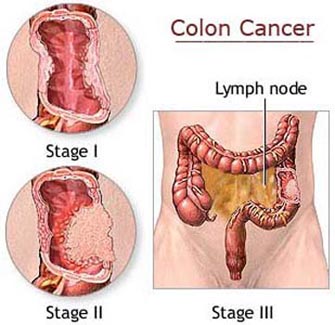Diets rich in meat and fats and low in carbohydrates up colon cancer risk
 Washington, March 31 : Diets rich in meat and fats and low in complex carbohydrates may increase the risk of colon cancer, say U. S. researchers.
Washington, March 31 : Diets rich in meat and fats and low in complex carbohydrates may increase the risk of colon cancer, say U. S. researchers.
Speaking at the Society for General Microbiology meeting at Harrogate, University of Pittsburgh's Professor Stephen O'Keefe described an expanding body of evidence to show that the composition of the diet directly influences the diversity of the microbes in the gut, providing the link between diet, colonic disease and colon cancer.
He said that people who ate a healthy diet, containing high levels of complex carbohydrate, had significant populations of micro-organisms in their gut called Firmicutes.
O'Keefe pointed out that such bacteria use the undigested residues of starch and proteins in the colon to manufacture short-chain fatty acids and vitamins like folate and biotin, which maintain colonic health.
A fatty acid called butyrate not only provides most of the energy to maintain a healthy gut wall, but also regulates cell growth and differentiation, said the researcher.
According to him, experimental and human studies both support butyrate's role in reducing colon cancer risk.
However, added the researcher, diets rich in meat produce sulphur, which decreases the activity of "good" bacteria that use methane and increases the production of hydrogen sulphide and other possible carcinogens by sulphur-reducing bacteria.
"Colon cancer is the second leading cause of cancer-related deaths in adults in Westernised communities. Our results suggest that a diet that maintains the health of the colon wall is also one that maintains general body health and reduces heart disease," said Professor O'Keefe.
"A diet rich in fibre and resistant starch encourages the growth of good bacteria and increases production of short chain fatty acids which lessen the risk of cancer, while a high meat and fat diet reduces the numbers of these good bacteria.
"Our investigations to date have focused on a small number of bacterial species and have therefore revealed but the tip of the iceberg, our colons harbour over 800 bacterial species and 7,000 different strains. The characterization of their properties and metabolism can be expected to provide the key to colonic health and disease," the researcher added. (ANI)